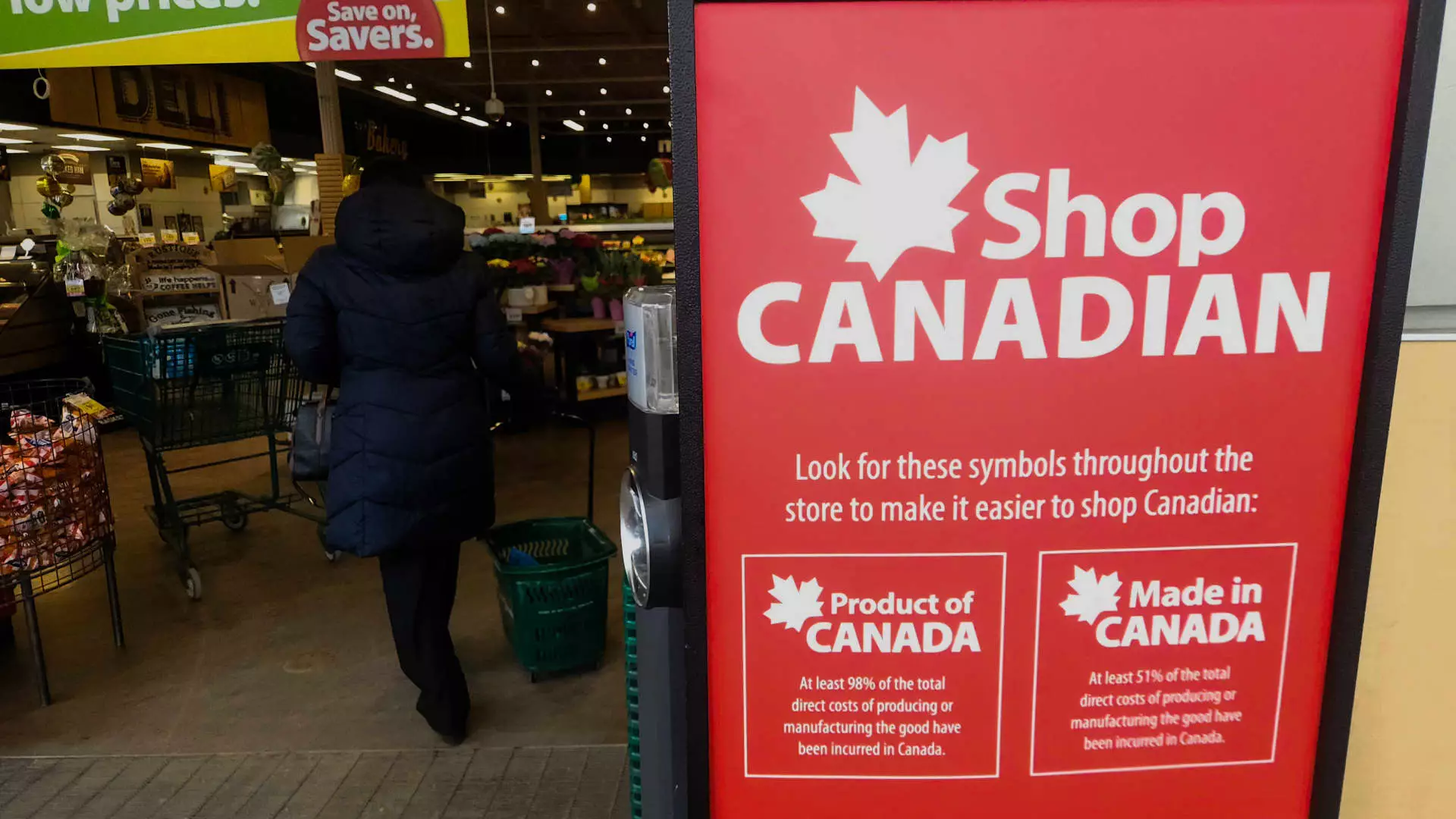In today’s ever-shifting political landscape, the imposition of tariffs may seem like an economic strategy, yet the emotional and psychological toll they inflict on international relations cannot be overstated. Particularly, the U.S.-Canada trade relationship—once seen as a cornerstone of mutual trust and collaboration—has been severely strained. President Trump’s decision to unfurl a wave of tariffs targeting even the neighborliest of nations forces us to question the long-term ramifications of such aggressive trade policies. The sticker shock felt by small businesses on both sides of the border, particularly in Canada, is profound, manifesting not only in financial struggles but also in a palpable sense of betrayal.
Historical Context: The Backbone of Trade
The North American trade history paints a picture of interdependence; in 2024 alone, trade between the U.S. and Canada amounted to an impressive $762.1 billion. As highlighted by statistics from the Office of the United States Trade Representative, Canada exported more than 75% of its goods to the U.S., while U.S. imports constituted nearly half of Canada’s total goods supply. The tariffs, however, disrupt this historically significant relationship. Berlin to Paris may have their disagreements, but when it comes to the U.S. and Canada, the failed promise of friendship due to trade wars feels like a flawed betrayal that threatens decades of cooperation.
Power Plays: The Emotional Price Tag
What often gets lost in the economic conversation surrounding tariffs is the emotional toll they exact on real people. Corinne Pohlmann, the executive vice president of advocacy at the Canadian Federation of Independent Business (CFIB), points out that entrepreneurs are not merely crunching numbers. For many, the tariffs evoke feelings of anxiety, resentment, and unease—emotions that may linger long after the tariffs themselves are adjusted. Pohlmann captures this sentiment aptly when she mentions the feelings of betrayal among Canadians. Small businesses, which often represent the backbone of their communities, now find themselves grappling with uncertainty, as they resort to desperate measures like renegotiating contracts and searching for local alternatives.
Subtle Resistance: Cultural Pushback Against Tariffs
Business responses to tariffs reveal an intriguing dynamic beneath the surface. For instance, Balzac’s Coffee Roasters decided to pivot from marketing their traditional Americano to a proudly rebranded “Canadiano.” This gesture reveals how culture can serve as a form of resistance against economic hostility. Various enterprises are also using symbols like the maple leaf to promote Canadian goods, creating an impactful cultural narrative that counters the fear and distrust bred by tariffs. Shrewd marketing tactics intertwine with national pride, giving consumers an avenue to express solidarity with local businesses while implicitly protesting against perceived injustices.
Technicalities and Complications: The Grey Areas
The complexities surrounding trade tariffs reveal much about the tangled web of international economics. For example, Liquor Control Board of Ontario (LCBO) ceased purchases of U.S. products amid the unfolding trade debacle, but this raises questions about what constitutes a “local” product. Are Canadian-owned beers produced in U.S. facilities still permissible under this new emotional code? The suppliers now find themselves stuck in a difficult limbo, as the LCBO explains that the borders of ownership don’t necessarily define local production. As this dance unfolds, so too does a new moral dilemma.
The Fallout: Erosion of Soft Power
The concept of “soft power” refers to a nation’s ability to shape the preferences of others through appeal and attraction. Former Secretary of State Antony Blinken’s concerns about the potential loss of U.S. soft power in the face of stringent tariffs cannot be ignored. America’s relationship with its allies serves as a major pillar of its influence on the global stage. The rhetoric around shifting allegiances that comes with trade protectionism is alarming. Potential allies may no longer view the U.S. as a reliable partner, as the significant erosion of mutual trust leads to hesitation to engage in business or political collaborations.
The Long Road: Rebuilding Trust
Even if tariffs are eventually mitigated or removed, the damage to relationships could take a generation to repair. Pohlmann’s assertion about the permanent fracture of the Canada-U.S. trading relationship underscores just how severe the consequences of such economic policies can be. While the tangible effects of tariffs may fluctuate, the intangible scars they impose could linger indefinitely, leading to a fractious international atmosphere that can only breed further grievances. This uncertainty raises a fundamental question: In a world that thrives on alliances, how can economically motivated conflicts sow seeds of division instead of partnership?
The veil of optimism that cloaked Canadian-American commerce now feels like a relic of the past. The stakes are high, and the implications of this trade hostility reach far beyond wallets; they extend into the emotional landscape of millions, fundamentally altering perceptions and trust between two nations that have often prided themselves on their camaraderie.

